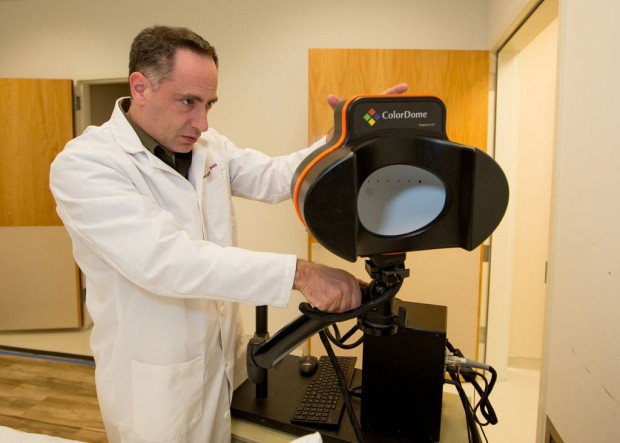Aurelien David: Let’s start with a hot topic. There is much chatter these days about blue light from screens keeping us awake at night. Should we really worry?
Dr. Jamie Zeitzer: To some extent, yes — but not only for the reasons everyone expects. True, recent studies have shown that the light from an e-reader could disrupt sleep; but these were performed in laboratory conditions that differ from a real-world setting. The physiological effect of a screen in the evening is complicated and depends, for instance, on how much light you received throughout the day — with more daytime light being better for sleep.
In fact, the psychological stimulus due to what you’re watching on your screen may matter as much as the light stimulus itself. Checking e-mail at night may be fine for some people but stressful for others; playing a game might stimulate you or relax you, depending on your personality. This means we should all pay more attention to ourselves, and be mindful of which electronic activities are acceptable.

AD: Is this to say concerns about light-sleep disruption are overblown?
JZ: Not quite — but the main culprit isn’t the one everybody suspects. We tend to get more light exposure from the lightbulbs in our homes than from our screens. People are surprised to hear this, but then again we tend to be pretty bad at judging absolute light levels — often, we can’t even tell when the brightness in a room has been doubled.
But think about it: our lightbulbs are on all the time and their light enters our eyes from all directions, bouncing off walls and objects. This amounts to a large dose of light over several hours. So, even though lightbulbs emit a warmer light than screens, they definitely have an impact on our sleep.

AD: Stepping back a bit, how well do we understand the health implications of sleep deprivation?
JZ: Well enough to know it’s a serious matter! Unfortunately, people tend to think of sleep with a short-term view: “I’m feeling tired today, I’ll have extra coffee to feel better.” Sure enough, self-medication through caffeine takes care of the most immediate effects.
But it doesn’t address other serious consequences: sleeplessness affects our metabolism and our mood, weakens our immune system, and it might even be linked to increased risks for some cancers. Just to cite one study out of many — a single night of sleep curtailment already affects our eating patterns, as our body seeks more fat and sugar to combat physiological stress. Scientists are also starting to better understand physiological effects of sleep on our brain: to put it simply, it appears to get rid of the “cellular junk” we accumulate through the day.

AD: Do you have some practical advice on how we can detect lack of sleep and be better about it?
JZ: Here is a simple rule of thumb: if given the opportunity, would you sleep in? If so, you’re sleep deprived — and that is nearly everybody’s case.
Improving our sleep is the difficult part. Most people lack sleep for a reason, whether it’s because they prefer to do something else, or have to work long days. For those who can actually afford to, better sleep starts with a personal act of choice, by deciding sleep deserves your time. The next step is to understand what really disrupts your sleep — and that may take the help of an expert.
AD: A parting question: are you a good sleeper yourself?
JZ: I have an insomniac personality… it takes a thief to catch a thief!
Dr. Jamie Zeitzer is a world-renowned expert on sleep medicine and the effects of light on the circadian cycle; he is a professor at Stanford University. Aurelien David is Chief Scientist at Soraa.
Originally published at medium.com


